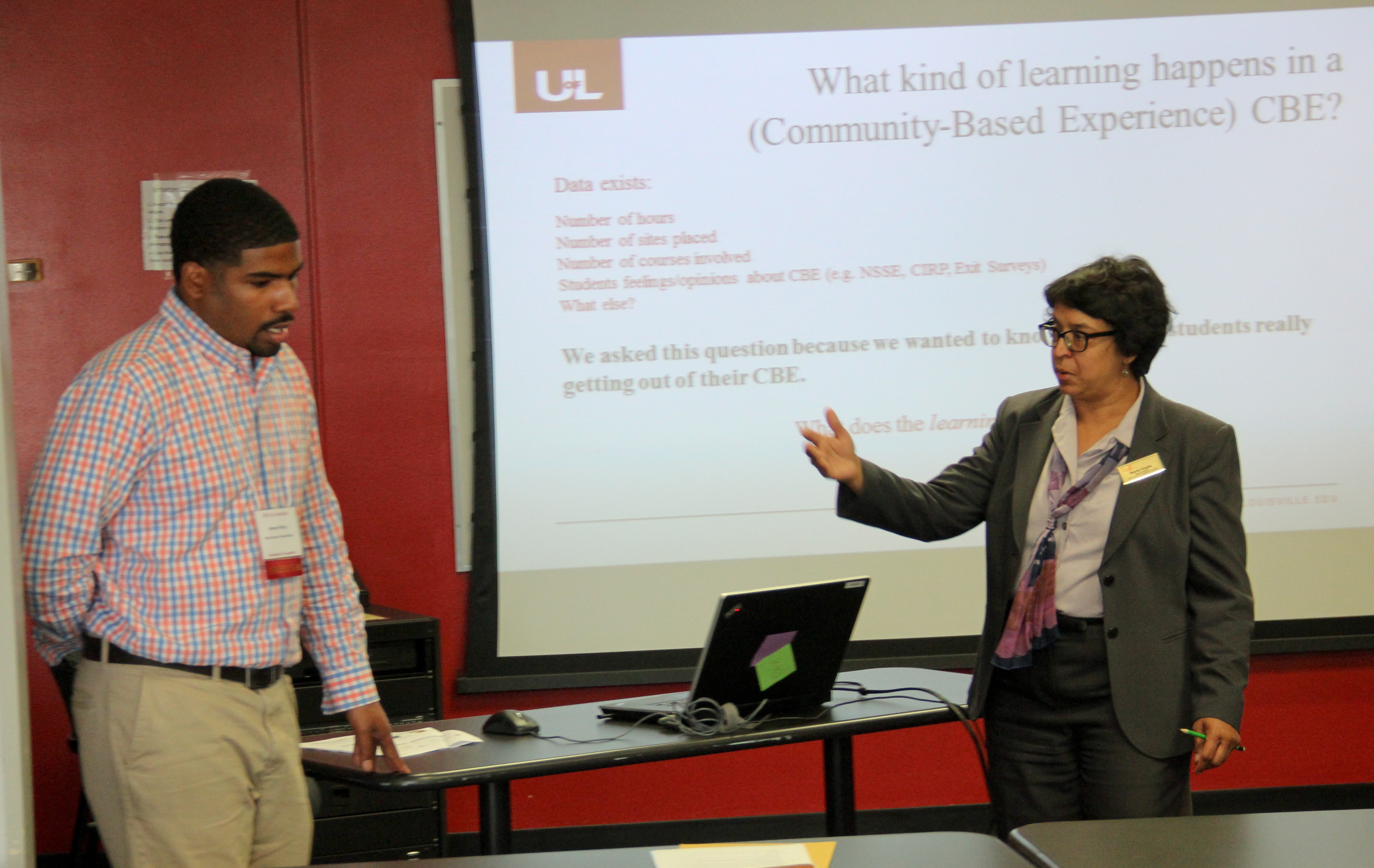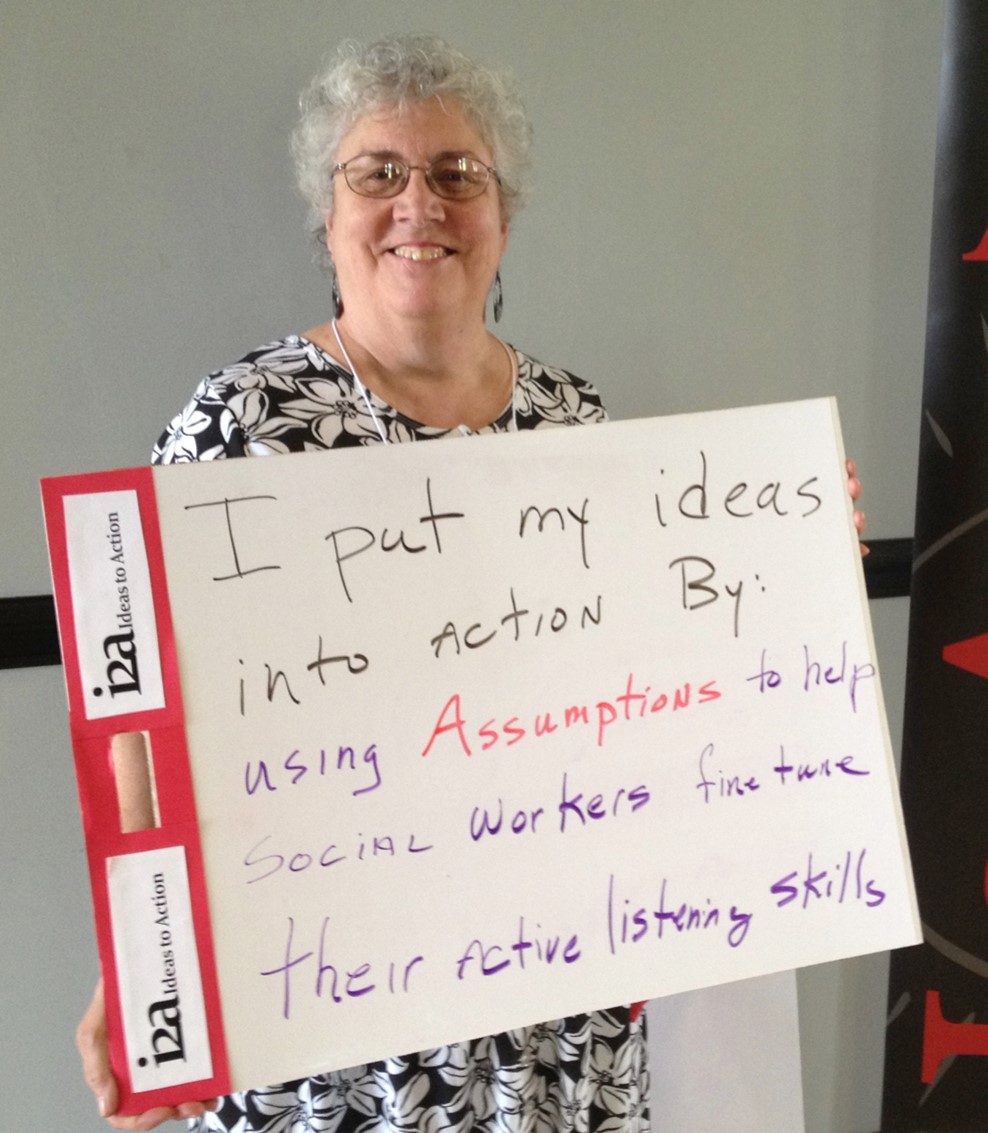2014-2016 Assessment Plan
Review our final report on the 2014-2016 Assessment Plan [PDF]
Get the “Quick Facts [PDF]” with this one page summary of the 2014-2016 i2a Assessment Plan.
View the August 2014 presentation [PDF] on our 2014-2016 i2a Assessment Plan.
Background
In collaboration with the Office of Academic Planning and Accountability* (OAPA), we have developed a two-year assessment plan to close out the University of Louisville’s ten-year Quality Enhancement Plan (QEP).
This two-year plan entails a university-wide data collection effort for the 2014-15 and 2015-16 academic years. It involves coordinating data collection efforts from select undergraduate courses as well as systematically assessing the level of university-wide integration of i2a outcomes within the undergraduate educational environment. The two integrated i2a outcomes are: 1) students will be able to think critically, and 2) students will develop the ability to address community issues within the discipline or the world more generally.
 Drs. Armon Perry and Nisha Gupta present together about assessment at the 2014 i2a Institute.
Drs. Armon Perry and Nisha Gupta present together about assessment at the 2014 i2a Institute.Protocol and Assessment Instruments
In the summer of 2014, a rubric was finalized to assess one of i2a’s two intended student learning outcomes, namely: “Students will develop the ability to address community issues” (initially labeled "ACI" during the research phase). During the fall 2014 semester, the assessment plan will include beginning the validation process for the Critical Thinking Applied rubric [PDF]. Critical thinking applied is an extension and demonstration of the complex thinking involved in practicing critical thinking and evidence of one’s thinking process in action.
Additionally, the i2a data collection effort will consist of collecting both direct and indirect measures of students’ ability to think critically, address community issues, and the culminating undergraduate experience. This effort is meant to align with the university’s Student Learning Outcome Annual Report process and annual evaluation efforts directed by the Office of Academic Planning and Accountability.
Prior to each semester, appropriate undergraduate courses will be identified (in collaboration with faculty and associate deans) and instructors will be contacted to participate in the submission of course syllabi, an appropriate student assignment, and sample of student artifacts related to the identified assignment. Instructors participating in the critical thinking data collection effort will also administer the Learning Critical Thinking Inventory (LCTI) [PDF], which assesses students’ perception of critical thinking activities and instruction within a given course.
The LCTI is part of a pair of assessment tools developed by Drs. Riaan Van Zyl, Cathy Bays, and Cheryl Gilchrist. The LCTI is meant to be paired with the Teaching Critical Thinking Inventory (TCTI) [PDF]. According to Van Zyl et al. (2013), “[T]he two scales were intended for faculty to assess their perceptions of the extent they facilitated learning critical thinking in their teaching.” We are encouraging faculty to administer the LCTI mid-semester to provide them with formative feedback and again, at the end of semester for summative feedback. Additional information regarding the development and validation of the LCTI and TCTI can be found here:
Van Zyl, M.A., Bays, C.L., & Gilchrist, C. (2013). Assessing teaching critical thinking with validated critical thinking inventories: The learning critical thinking inventory (LCTI) and the teaching critical thinking inventory (TCTI). Inquiry: Critical Thinking Across The Discipline, 28(3), 40-50.
Timeline
The 2014-2016 i2a Assessment Plan entails a two-year data collection effort. Please refer to our i2a Assessment Plan Timeline [PDF] for an overview of the two-year collection period.
What our institution will gain from implementing this plan:
- The ability to evaluate the breadth and depth of university-wide integration of i2a across undergraduate curricula beyond annual SLO reports
- The ability to systematically implement and assess the university-wide integration of our current and future QEP (ongoing efforts beyond 2017)
- The ability to finalize our current QEP efforts through the collection of the necessary assessment pieces of student learning
- The opportunity to develop meaningful feedback (both summative and formative) for our university community to inform program decisions and continually improve student learning
Moving forward, the university will establish a process and plan for ongoing university-wide assessments that will inform our efforts for continuously improving student learning, especially as the university introduces an additional QEP.
 Dr. Judy Heitzman -2014 i2a Institute attendee
Dr. Judy Heitzman -2014 i2a Institute attendeeQuestions? Do you wish to participate?
Please contact IL BARROW, i2a specialist for assessment.
* The Office of Academic Planning and Accountability coordinates the strategic planning, institutional research, and institution effectiveness functions of the University.
